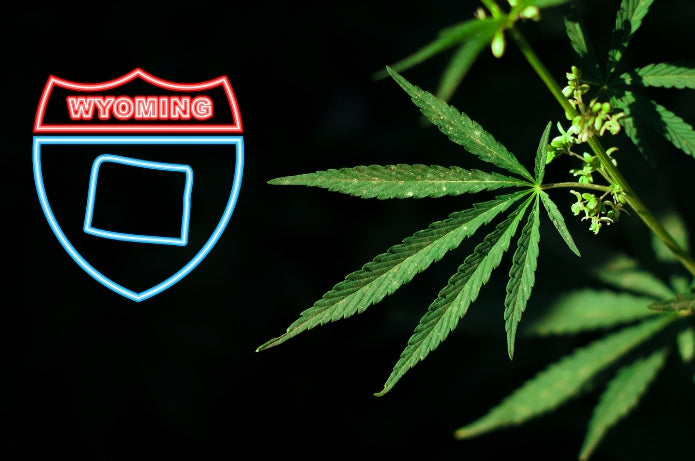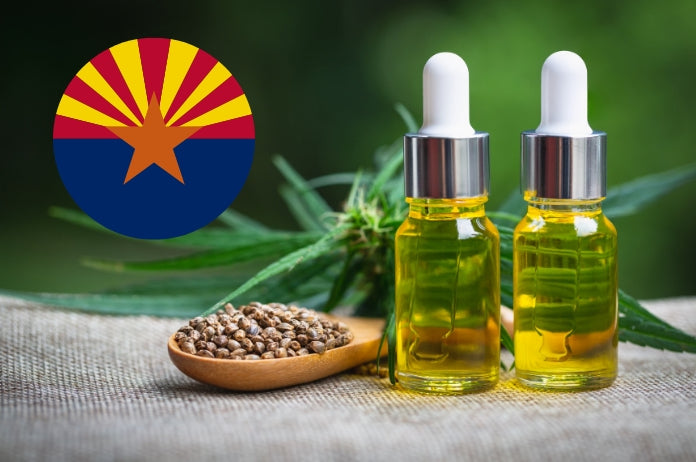To avoid the legal delays and other roadblocks stemming from lawsuits over preferential social equity licensing, lawmakers and the governor are proposing new changes to the state’s 2023 legalization statute.

“The road to hell is paved with good intentions.” – Unknown Author
While there is some debate over who exactly coined the phrase, the universal truth it conveys is powerful and applicable to every era of human civilization. First written down in Virgil’s timeless “Aeneid,” the saying essentially means that even with the best and most virtuous motivations, human beings have the annoying tendency to screw things up.
There is no better current example of this aphorism than the insistent, bordering on maniacal, need to force social equity provisions into every piece of cannabis legislation reform in America. Much like the quote implies, the reasoning behind the passionate inclusion of these provisions has societal merit.
Over the past decade, well-meaning, predominantly progressive-minded politicians and industry advocates, in an attempt to atone for the past sins of the catastrophic “War on Drugs,” lobbied for and successfully achieved language in most state cannabis legalization measures to include provisions that give special advantages to those most injured by the racially-biased drug laws that incarcerated a disproportionate number of African Americans, Latino Americans, and other minority groups.
However, as many lawmakers, prospective cannabis entrepreneurs, and state judicial systems are finding out, the desire to right the wrongs of the past can be a tricky and perilous legal and societal minefield to navigate.
One of those well-intentioned states feeling the financial and political pressure of the social equity goals for its recently legalized adult-use cannabis market is Minnesota. With the stroke of his executive pen, Gov. Tim Walz (D) signed the legalization reform into law last May. However, since then, he and the voters from the North Star State have endured one unexpected hurdle after another on their arduous journey to a successful market launch.
From an embarrassing scandal surrounding Walz’s initial choice to head the new Office of Cannabis Management to delay after delay over licensing rules, the trek to a fully realized recreational marijuana market for adults over 21 has been anything but seamless.
One of the main roadblocks to achieving the much-publicized and anticipated March 2025 launch is the controversial and polarizing issue of social equity. As first reported in the MinnPost this week, state officials and Gov. Walz are now contemplating a radical policy implementation shift for assigning the all-important and highly coveted recreational cannabis business licenses for the new adult-use market sector.
Under the 2023 law, a complex points system awards applicants based on a convoluted list of goals, from being a military veteran to having specific financial plans and employee training systems. Additionally, at least 20% of the available points are set aside for those individuals defined as social equity applicants. That vague and somewhat subjective description is at the heart of the controversy.
While the point system approach may still enable state officials to launch the market by the target date successfully, it may also generate legal challenges that will ultimately halt the licensing process. Similar point systems in other states, like New York, have been characterized as arbitrary and discriminatory, leading to a myriad of lawsuits and legal challenges.
As a result, along with other tweaks to the existing law, some lawmakers, regulators, and the governor propose a lottery system to help fairly decide which applicants receive the highly prized licenses. Much like the actual state lottery, a similarly random method for choosing which individuals receive the first licenses to open stores, build large grow operations, or create the combination enterprises known as cannabis microbusinesses and mezzobusinesses would be used over the legally dubious points system.
The lottery and other changes to the 2023 adult-use cannabis law are seen as the best way to avoid lawsuits like those in New York, which effectively crushed that state’s effort to have a successful market launch. The delays also led to a predictable spike in illicit market activity, further crippling the legitimate industry.
“What we have seen, particularly when it comes to how you determine social equity status, is that a point system has been subject to legal challenge. We’re certainly not creating these proposals based solely on the lens of mitigating legal risk. But it is certainly a factor that we consider because one of the biggest challenges in other states has been the constant parade of legal challenges,” said interim Office of Cannabis Management director Charlene Briner in an interview this week.
"What we have seen, particularly when it comes to how you determine social equity status, is that a point system has been subject to legal challenge. We’re certainly not creating these proposals based solely on the lens of mitigating legal risk. But it is certainly a factor that we consider because one of the biggest challenges in other states has been the constant parade of legal challenges."
- Charlene Briner, Interim Director of the MN Office of Cannabis Management
Echoing Briner’s sentiments, Gov. Tim Walz said Wednesday that it makes sense to anticipate the chances for legal challenges and respond appropriately to the bill.
“I think you need to get it right but I think timeliness is critical. My goal is to still meet the timelines,” Walz said.
"I think you need to get it right but I think timeliness is critical. My goal is to still meet the timelines."
- MN Governor Tim Walz (D)
To bolster their argument for adjusting the current legislation and implementing the proposed lottery system, officials at the Minnesota Office of Medical Cannabis commissioned an essay assessing the first decade of state legalization by the Cannabis Public Policy Consulting firm.
In that article, Executive Director Mackenzie Slade notes that “Nowhere has the tension between good intentions and impossible implementation been felt more acutely than the social equity licensing programs.”
"Nowhere has the tension between good intentions and impossible implementation been felt more acutely than the social equity licensing programs."
- Mackenzie Slade, Exec. Dir. of the Cannabis Public Policy Consulting Firm
In the end, she draws two conclusions for avoiding a “failed program” launch:
- Point systems should never be used to determine who gets licenses.
- Social equity applicants should be allowed to raise money from non-social equity investors.
To avoid those pitfalls and still achieve the righteous goals behind the inclusion of social equity provisions, Briner proposes the following changes/adjustments to the current law:
- Create a temporary license system. Social equity applicants — individuals or business groups with social equity participation — could apply for early temporary licenses as soon as this summer. If they meet the criteria and display financial and management preparation, and if there are more applicants than the number of licenses available, they will be entered into a lottery.
- Allow temp license holders to move toward opening. The winners of what Briner terms “a golden ticket” could then move toward securing business sites and applying for local permission. If they remain in good standing with the OCM, they will be guaranteed full licenses when the rules and regulations are approved and the legal program rolls out in Spring 2025.
- Create a second-chance lottery. Social equity applicants who did not get into the first lottery would have a chance for a second lottery, likely early next year.
- Create a third lottery. All other applicants, including those who did not win the first two lotteries, will be entered into a third lottery sometime in the first three months of 2025.
While it is not a perfect solution, it does provide an “early mover advantage” for social equity candidates without giving undue competitive fodder for potential lawsuits. According to Briner, social equity licensees will be allowed to get everything ready to start their businesses under this proposed system.
However, they will not be able to cultivate or sell marijuana before other licensees or before the rules are finished and approved in the first three months of 2025.
“People won’t actually touch the plant. They won’t be putting seeds in the ground or cultivating a plant or opening the doors of a dispensary,” Briner said.
"People won’t actually touch the plant. They won’t be putting seeds in the ground or cultivating a plant or opening the doors of a dispensary."
- Charlene Briner, Interim Director of the MN Office of Cannabis Management
During that headstart period, they will secure financing along with their physical buildings and storefronts, get all the necessary approvals, and know they have a guaranteed license. Non-social equity applicants will not receive those same assurances until later.
For now, the plan is just a proposal for lawmakers to consider as a way to speed up the licensing process, ensure a successful target launch of March 2025, and, most importantly, avoid the legal battles currently bogging down other legal markets across the country.



























